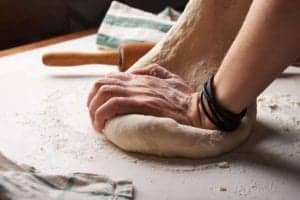LEARNING TO LAMENT, A GUIDE FOR CAREGIVERS
 (Photo by v2osk on Unsplash)
(Photo by v2osk on Unsplash)
These mountains that you are carrying,
you were only supposed to climb.
—Najwa Zebian
LAMENT OF LOST DREAMS
When John and Beth got married, all the world was open for them to explore and conquer together. And for 47 years, this is what they did, hand in hand, eyes focused on fantastic dreams and possible goals.
For nearly five decades, all went reasonably well until the day John put the lettuce in the freezer and went out to shovel snow…in his stocking feet.
That was the day Beth realized her recent retirement was over. Beth would be going back to work. Not as a highly-skilled and respected middle school teacher but as an overworked, underpaid caregiver of a spouse with dementia.
She knew there would be many things she needed to learn, but before she could move on, Beth needed to learn how to lament.
Why is learning to lament the first task for a new caregiver to master?
 Because to carry grief is like toting a backpack of heavy stones.
Because to carry grief is like toting a backpack of heavy stones.
The journey becomes impossible because of the burden. (Photo by Danka-Peter on Unsplash)
Unexpressed grief holds us back as surely as if we are shackled with chains that rob us of our power to proceed.
Grief cannot be ‘solved’. It must be felt.
LAMENT UPON DEATH

A lament reaches deep into the gut, becoming a channel for feelings that we may not even be aware we are holding.
A lament arises, not out of thinking, but out of our very tissues. Tears. Wailing. Muscle weakness. A heart in many pieces. Incarnate grief.
(Photo by Hanna-Postova on Unsplash)
Lucy’s husband, who often wandered away without telling anyone, went for a walk in the woods one winter day when the snow was a foot deep. Henry may have paused to enjoy the silence and to breathe in the wonder of the land he so dearly loved.
It was his last breath. A rescue team found his frozen body a couple of hours later. An autopsy revealed he had suffered a massive heart attack.
When I went to the hospital to be with Lucy she was in deep lament. Her tears knew no end. Her only conversation was a moan punctuated by an occasional wail. I held her as she sobbed and choked from a well of sorrow.
Lamenting is not socially comfortable in white middle-class America. We are trapped by WPWT (what people will think) and a ‘stiff upper lip’ ethic. I am so glad Lucy was not constrained by this value.
Sometimes our first response to loss and grief is to stiffen our spine, push down the fear, and the sadness with an attitude of “I can do this. It’s only another mountain to climb, and I have climbed many in my lifetime.”
The problem, though, is that caregiving someone with dementia is not a single, albeit high, mountain to climb. It is an entire range of peaks and valleys. And you are hiking the trails alone, for your trail buddy is now–and forever—lost.
HEALING THROUGH LAMENT
When we mourn with our whole body, we let ourselves be touched by the full extent of our loss. We are not confining our emotions to what is culturally ‘appropriate.’
 I am not sure the roots of ‘real men don’t cry.’ I do know it is neither historically accurate nor healthy. Creation gave us, (men and women) tear ducts, tender hearts, and emotions for a reason. Ask any physician what happens chemically in the body when we suppress feelings of grief, usually to keep other people from feeling bad. (Photo by Tom-Pumford on Unsplash)
I am not sure the roots of ‘real men don’t cry.’ I do know it is neither historically accurate nor healthy. Creation gave us, (men and women) tear ducts, tender hearts, and emotions for a reason. Ask any physician what happens chemically in the body when we suppress feelings of grief, usually to keep other people from feeling bad. (Photo by Tom-Pumford on Unsplash)
I believe we have become a nation of obese, depressed, addicted people subject to chronic health problems in part because we have forgotten how to lament.
In some communities and cultures, wailing, moaning, or keening release personal and collective sorrow at a time of significant loss.
It is difficult to witness, and awkward for white middle-class Americans to do.
And besides, you may be thinking, caregiving isn’t precisely death.
Oh no?!
Ask Beth or Lucy, and let her tell you all the things that died in her marriage and relationship. Dementia is a journey of little deaths every day.
LAMENTS IN POETRY
If wailing isn’t for you, may I suggest poetry? Either writing or reading.
But read it aloud. Using the voice (or pushing a pen) engages the body and the result may surprise you.
Through poetry, we can name our losses, shed our tears, and gather strength for another day…or maybe hour…or even just a minute.
One of my favorite poems is by Robert Frost. I love how he names the reality of impermanence.
Nothing Gold Can Stay
By Robert Frost
Nature’s first green is gold,
Her hardest hue to hold.
Her early leaf’s a flower;
But only so an hour.
Then leaf subsides to leaf.
So Eden sank to grief,
So dawn goes down today.
Nothing gold can stay.
Or check out Mary Oliver’s poem “In Blackwater Woods.”
LAMENTING WITH THE BODY
Ok…so wailing, even vicariously through the heart of a poet, isn’t for you. That’s fine.
Personally, I am a pounder. Not given to verbalizing my grief, I pound things—the pavement on long walks, or pillows if they are available

I beat a drum.
I lean into yeast dough as if it were the shoulder of God. (Photo by Nadya-Spetnitskaya on Unsplash)
Something about the physicality of these actions releases built up tears within, and I can take another breath.
Breathing almost disappears when we hold grief with no way to express it.
I love the image of my teeth tearing into freshly baked bread in which I have pounded my sadness, and letting my body digest the pain.
And in this process, my body absorbs what is good from grief and eliminates what is not useful.
You may consider this post as your official permission lament. Do so with your whole heart, that it may release its burden of stones.
And don’t worry about WPWT. Chances are they need your lament to give them permission to grieve too.

(Photo by Anastasia-Dulgier on Unsplash)


Ellen Sweeney
Ardis as a caregiver for my sister Anne who recently died. Where have you been all my life? . . .
I’m still caregiving for another sister, who also has some physical deficiencies due to a liver transplant she received back in 2007. . . We reside together and so it has become natural for me to give care.
Your posts have touched me deeply and I’m so glad to have connected with you… I will be following your blog for nuggets of wisdom. Thank you!
(Some heartfelt and personal comments were edited out for the sake of privacy–ACM)
Ardis Mayo
Ellen, what a challenging path you have been walking. I hope you have plenty of opportunities to ‘lament’ so your burden may be lighter.
Eleanor M. Miller
Beautiful, as always. I shared for my family and friends who are caregivers and for those who are grieving.
Ardis Mayo
Thank you, Eleanor. May your family and friends hear what they need to hear and discard the rest. I am setting up a FB group called “Breathing Room” for caregivers. It’s in the incubator as I write this but will be a place for caregiver support when it has just a wee bit of content. You are welcome to invite others to join and get the ball rolling.
Judith Scarborough
Thank you for writing on this topic this week. The idea of lament resonates with me, especially at this time of uncertainty and concern for the future. And what better place to wail and howl in lament than alone in my home? It might confuse my dog-go, but maybe not 🙂
Ardis Mayo
I suspect our dogs understand better than we do the importance of lament.
Bonnie
Spot on. I especially resonated with the metaphor about pounding dough and eating bread – our bodies need to be engaged in process. Thank you.
Ardis Mayo
Yes…I love the idea that I can ‘digest’ pain and let it give me energy.
Pingback:
Pingback: